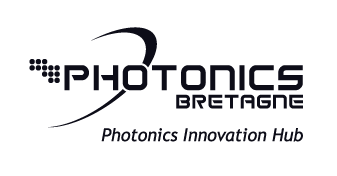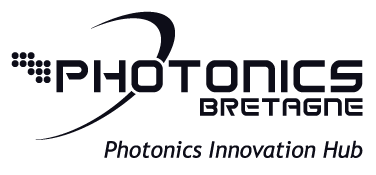PhD in Photonics (H/F)
Whispering gallery modes microsphere visible light sources based on single quantum emitters (MASALA-Q)
Expected starting date: Between 01-09-2024 and 01-11-2024
Principal Investigator contact: Prof. Stéphane Trebaol, stephane.trebaol@univ-rennes.fr, University of Rennes
Only Indian candidates or candidates with a research experience in India are eligible; French candidates are not eligible.
Project description:
Keywords: High-Q microresonator, rare-earth ions, single photon source, laser, visible light, cavity quantum electrodynamics
The objective of the project is to follow up the early stage of lab-to-market technology transfer of integrated atomic clock and quantum optics for which, compact room temperature coherent photonic sources is still lacking.
Abstract of the Research Project:
Footprint reduction of quantum photonic components relies on the availability of integrated narrow-linewidth lasers and efficient room temperature single photon sources.
An ideal quantum system should address simultaneously narrow optical transitions and long spin coherence time. Various solid-state qubits optically addressable have been studied within the last decade; such as semiconductor quantum dots, colour centres and rare-earth ions. The main difficulties to reach robust room temperature single photon sources lies in the weak fluorescence emission for quantum emitters. To overcome this, one solution consists in introducing quantum emitters in a high finesse optical resonator to enhance the spontaneous emission rate. Microresonators, thanks to their high-Q factor and small mode volume, have been identified as model systems to study cavity quantum electrodynamics (CQED) phenomena and narrow-linewidth and low threshold laser emission. Microsphere resonators are simple photonics objects easy to fabricate and customable in term of doping medium, host matrix, size and shape. This makes microspheres a model system to study various light emission configurations. Rare earth doped microsphere resonators have demonstrated their ability to produce optical memories and laser emission in the visible range by using the up conversion effect.
Meanwhile, the recent availability of efficient GaN laser diodes has pushed forward the development of rare-earth doped lasers at visible wavelengths. To date such direct in band-pumping scheme has not been reported yet in microresonators either for laser emission observation nor single photon source
demonstration at visible wavelengths.
Scientific Objectives of the Project:
We propose to develop compact whispering gallery modes (WGM) microsphere visible light sources based on single quantum emitters. In particular, the PhD student will contribute to study the optical properties at visible wavelengths of rare earth ions incorporated into high-Q and high finesse microsphere resonators. Fluorescence measurement and laser emission will be implemented in WGM microspheres doped with rare earth ions emitting at visible wavelengths like Erbium, Praseodymium, Dysprosium to only name a few. Various materials will be involved like polymer, silicate and fluoride glasses to determine the optimal host matrix.
The Masala-Q project is unique opportunity to bring together complementary skills and know-hows of the two partners, International School of Photonics (CUSAT-India) and Foton Institute (CNRS-France), to reach the demonstration of targeted milestones: (i) a sub-kHz linewidth and tens of mW visible light fiber laser (ii) a kHz linewidth visible light microsphere laser with sub µW threshold and (ii) a room temperature single photon source.
FOTON Institute will collaborate through this project with national (Exail, Le Verre fluoré, Photonics Bretagne) and international partners (University of Kochi – CUSAT-, India).
Candidate profile:
- Applicants for PhD must have a master’s degree (or be in the process of obtaining one) or have a University degree equivalent to a European Master’s (5-year duration) to be eligible at the time of the deadline of the call;
- No competences in French language is required
- Candidate competences: Laser physics, optical fibers, optical resonators, non-linear optics, numerical simulations. Good communication skills in English are required.
- Candidate know-how: Laser characterization, instrumentation (relative intensity noise and frequency noise measurements), control or servo-loop. The ideal profile would combine interest for experimental work and, in a second place, for modelling and simulation work.





